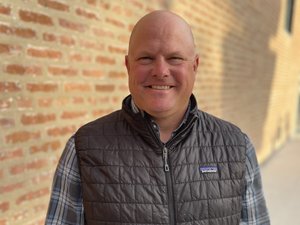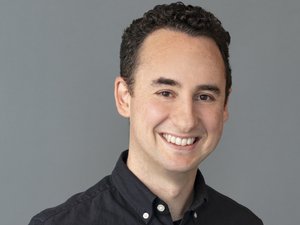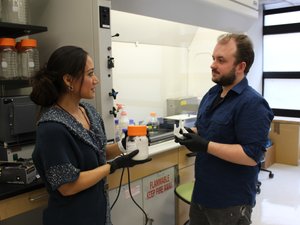When Ryan Hoch, a 2009 University of Illinois Urbana-Champaign engineering graduate, first started teaching math and ACT prep at a public high school in St. Louis, he asked how many students wanted to go to college. Though the vast majority of the kids, many juniors and seniors, raised their hands, and mentioned schools like Washington University and St. Louis University on their wish list, many had ACT scores and GPAs well below the acceptance rate.
"It was way to late in the game to do anything about it," said Hoch.
Now, using edtech, he wants to ensure that students are ready for college from day one of high school, no matter the resources of their school.
The idea is Overgrad, a college readiness platform that organizes, tracks, and informs students of their progress toward an education goal. The free platform, which Hoch developed with fellow UIUC engineering alum Kevin Hoffman, places an emphasis on reaching students and schools that don't have the budget for an expensive platform and whose students may be searching for education options outside four year universities.
Overgrad's platform lets students research and track schools through an individualized dashboard, and compare their progress in high school to the average student admitted to a school. Students can research safety, match, and reach schools, then follow a school they want to work toward. Throughout their high school career, they can add their accolades, submit test scores (including earlier tests like ACT Plan and PSAT), and monitor the rigor of their coursework.
Though there are other college planning and research dashboards out there, Hoch points out many are geared toward juniors and seniors ready to apply to college. The Overgrad platform is aimed at freshman and sophomores. "In order to solve this problem [of college readiness], we need to let them know they are off track earlier," Hoch said.
Overgrad also recently debuted the early stages of a second feature focused on readying students for future careers, something that was inspired by a surprising customer base.
In talking to schools, districts, and community organizations about their product the Overgrad team found that many larger networks of charter schools and wealthy districts already had platforms in place, either because they had the funds to purchase software or had funds set aside to commit to readiness programs. Rural districts and low-income suburban districts without the same sort of funding, however, jumped at the free product.
"There are so many solutions that help the top tier, but few that help the middle 50 percent of students," said Hoch.
In working with these schools, the two found a need for planning tools for students not headed to four year universities. So in July they released Overgrad for Careers. The new function allows for students to choose a career focus, so they can plan for the right education, training, or certificate program that could bring them to the first job out of school. The idea is to get students thinking, "What are the long term outcome that education can create for you?" Hoch said.
Focusing on rural schools has also turned out to be successful strategy for onboarding customers, especially in a largely rural state like Illinois. Hoch said Overgrad is used in some capacity in 1 out of every 6 public high schools in the state, and over 30,000 students overall. Recently they did a national marketing push, and Hoch expects that number to grow after this summer.
So far, the company has been bootstrapped, and have made revenue through colleges paying to identify high-match students at an early age. Through an opt-in feature called UConnect, Overgrad acts as a student-to-college LinkedIn: colleges can look at student profiles and students can connect with admissions counselors. Going forward, they hope to replicate that recruiting revenue model with employers and the military.
It is hard to say just yet if Overgrad has the right approach to improving college readiness. Hoch admits since the product has only been around two years, they don't yet have data that shows how freshman and sophomores using the service now have transitioned into success after high school. But anecdotally, he said he has been heartened by stories from counselors and students.
A week after the program launched in a high school with at-risk students, Hoch got an email from a counselor at the school saying one student skipped his lunch to search schools on the program. Another one was thrilled because he saw Eastern Illinois University had viewed his student profile.
"He didn't know that colleges out there wanted him," Hoch said. "We want to help kids understand that education can unlock opportunity."








